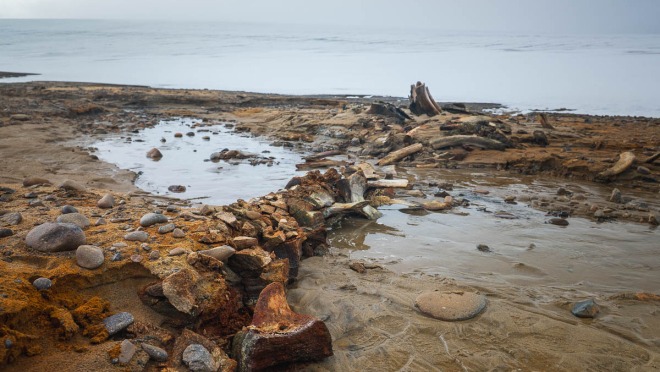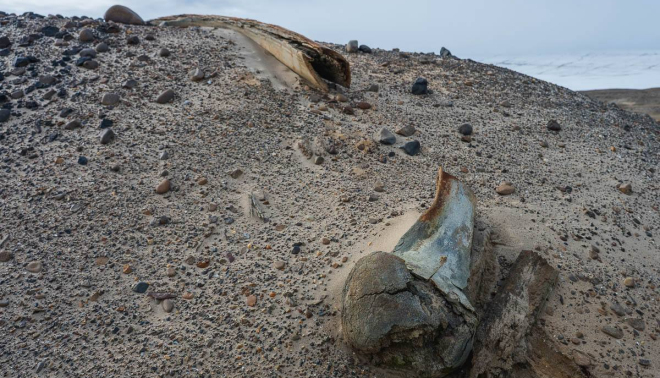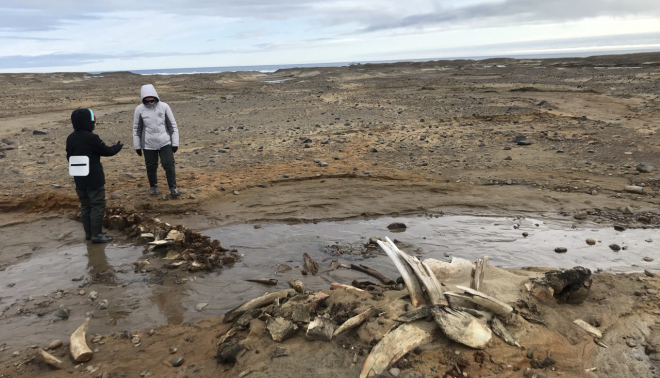Scientists have discovered that a glacier in the Russian Arctic is retreating extremely quickly — and its rapid retreat has exposed a graveyard of ancient whale bones.
The research expedition landed on Wilczek Island, in the far north of Russia, earlier this year to study permafrost, according to a statement from the Arctic and Antarctic Research Institute (AARI) in Russia.
Using satellite imagery, the team compared current and past positions of the glacier, Nikita Demidov, an AARI geologist, said in the statement. The scientists found that the ice cap on the island had split into two parts over a period of less than 20 years.
This glacier’s decline is part of a wider shift — a study from February found that, since 2000, glaciers have lost about 5% of their ice globally.
Related: Dramatic transformation of the Arctic landscape may be permanent
The schism in the ice revealed several square miles of the island’s surface, which held a large number of whale bones. Some of the skeletons are well preserved. Demidov noted that the bones are worst preserved near the seashore, where they have had longer to thaw, and are best preserved closest to the glacier.
“The paleontological find indicates an episode of extremely rapid sea level change in the area of the northernmost archipelago of Eurasia, which occurred in the last few thousand years,” he said.
The expedition is being conducted from an Russian ice-strengthened vessel called Professor Molchanov and will continue through August, according to Russian state news agency TASS.


